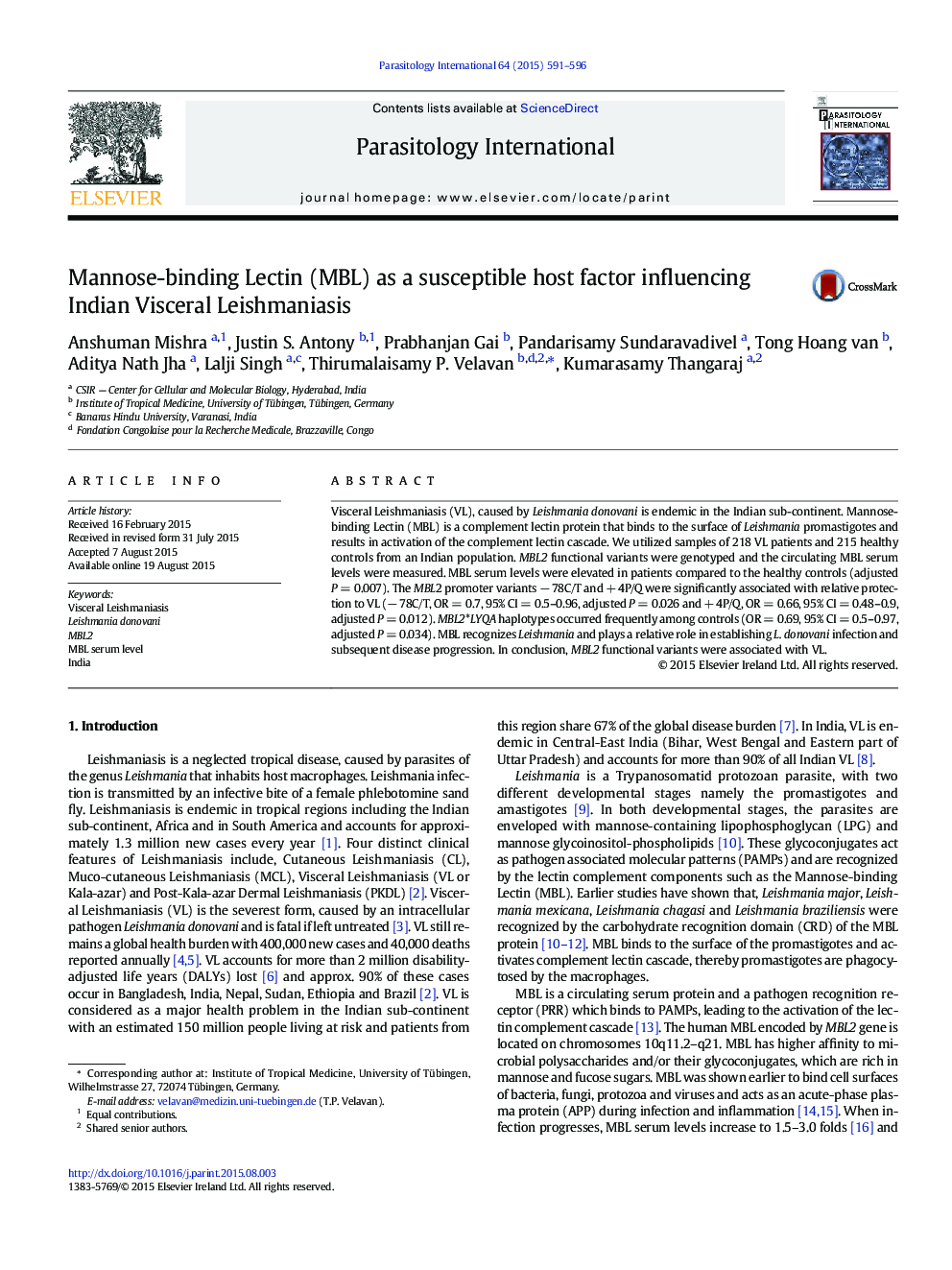| Article ID | Journal | Published Year | Pages | File Type |
|---|---|---|---|---|
| 3417780 | Parasitology International | 2015 | 6 Pages |
•Visceral Leishmaniasis caused by L. donovani is endemic in the Indian sub-continent.•The MBL2 variants were significantly associated with protection to VL.•The MBL2*LYQA haplotype was also significantly associated with protection to VL.•Increased MBL serum levels were observed in VL patients.•MBL and their genetic variants play roles during VL caused by L. donovani.
Visceral Leishmaniasis (VL), caused by Leishmania donovani is endemic in the Indian sub-continent. Mannose-binding Lectin (MBL) is a complement lectin protein that binds to the surface of Leishmania promastigotes and results in activation of the complement lectin cascade. We utilized samples of 218 VL patients and 215 healthy controls from an Indian population. MBL2 functional variants were genotyped and the circulating MBL serum levels were measured. MBL serum levels were elevated in patients compared to the healthy controls (adjusted P = 0.007). The MBL2 promoter variants − 78C/T and + 4P/Q were significantly associated with relative protection to VL (− 78C/T, OR = 0.7, 95% CI = 0.5–0.96, adjusted P = 0.026 and + 4P/Q, OR = 0.66, 95% CI = 0.48–0.9, adjusted P = 0.012). MBL2*LYQA haplotypes occurred frequently among controls (OR = 0.69, 95% CI = 0.5–0.97, adjusted P = 0.034). MBL recognizes Leishmania and plays a relative role in establishing L. donovani infection and subsequent disease progression. In conclusion, MBL2 functional variants were associated with VL.
Graphical abstractFigure optionsDownload full-size imageDownload as PowerPoint slide
